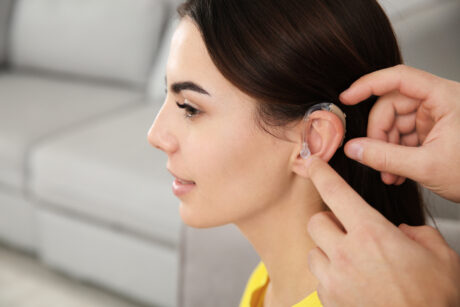Acoustic neuroma, also known as vestibular schwannoma, is a noncancerous (benign) tumor that develops on the vestibulocochlear nerve, which connects the inner ear to the brain. This nerve is responsible for both hearing and balance.
While acoustic neuromas are slow-growing and typically not life-threatening, they can cause a range of symptoms as they grow and press on the nerve and surrounding structures in the brain. These symptoms often involve hearing and balance difficulties, making it crucial to recognise these signs and seek professional help as soon as possible.
Symptoms of Acoustic Neuroma
The symptoms of acoustic neuroma can vary depending on the tumor’s size and location within your head. However, some of the more common ones include:
- Hearing Loss: Often a gradual loss of hearing in one ear, making it difficult to understand conversations, especially in noisy environments, or to hear high-pitched sounds clearly.
- Tinnitus: A ringing in your ears, or a buzzing or whooshing sound in the affected ear that can be constant or intermittent.
- Balance Problems: Dizziness, vertigo (a spinning sensation) and difficulty maintaining balance, which can make everyday activities like walking challenging.
- Facial Numbness or Weakness: Numbness, tingling or weakness in the face, often on one side, which may affect facial expressions.
- Headaches: Persistent headaches, often occurring on the same side as the tumor.
When to Seek Medical Attention
It’s important to seek medical attention promptly if you experience:
- One-Sided Hearing Loss or Tinnitus: Hearing loss and tinnitus are common indicators of acoustic neuroma. If you notice these symptoms occurring together, it’s essential to be evaluated by an audiologist.
- Persistent Dizziness or Balance Problems: While occasional dizziness can be normal, persistent balance issues can indicate an inner ear problem, including acoustic neuroma. It’s crucial to seek medical attention to determine the underlying cause and receive appropriate treatment.
- Multiple Symptoms: If you experience several symptoms all at once that are suggestive of acoustic neuroma, even if they seem mild, it’s important to consult a healthcare professional. Early diagnosis and intervention can significantly improve outcomes and help preserve your hearing and balance.
Diagnosis and Treatment
During testing, your doctor will likely recommend the following:
- Hearing Tests: Hearing tests are often the first step in evaluating your hearing and identifying potential issues. These tests can help determine the type and degree of hearing loss and provide clues about the underlying cause. Audiologists use a variety of tests to assess your hearing abilities, including pure-tone audiometry, speech audiometry and other specialised tests.
- Imaging Scans: If the hearing tests indicate a potential problem, your doctor may order imaging scans, such as an MRI, to visualise the inner ear and surrounding structures. MRI scans can help confirm the diagnosis of acoustic neuroma and determine the size and location of the tumor.
- Treatment Options: The treatment for acoustic neuroma depends on various factors, including the tumor’s size, growth rate and the severity of your symptoms. Treatment options may include:
- Observation: Monitoring the tumor’s growth with regular MRI scans.
- Surgery: Surgical removal of the tumor.
- Radiation Therapy: Using radiation to shrink or control the tumor’s growth.
Taking Control of Your Hearing Health

While it’s typically not life-threatening, it’s essential to be aware of the common symptoms of acoustic neuroma. Early detection of these symptoms is crucial for effective management and preservation of your hearing health, so make sure to seek professional help promptly if you experience any of them.
At the Listening Lab, our audiologist specialists are equipped to conduct comprehensive hearing evaluations. We utilise advanced technology to assess your hearing and to identify any potential concerns, including those related to acoustic neuroma.
If other forms of hearing loss are detected, we can also provide personalised hearing aid fittings and assistive listening devices to help improve your hearing and overall quality of life. Schedule an appointment with the Listening Lab today to take charge of your hearing health!











